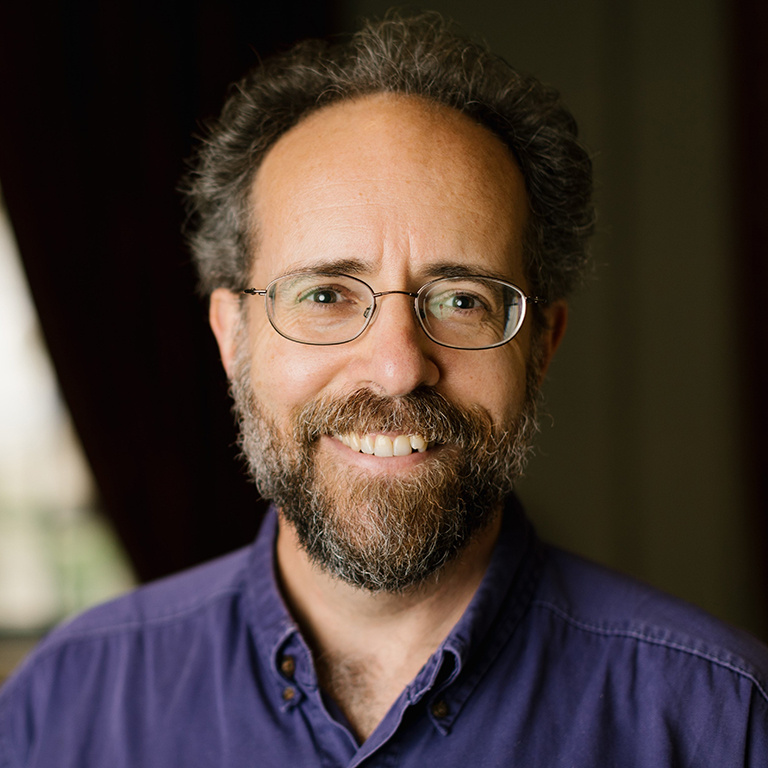- Ph.D., Harvard University, 2000
- B.A., University of California, Berkeley, 1992

Adam Leite
Professor, Philosophy
Department Chair

Professor, Philosophy
Department Chair
I am Department Chair and Professor of Philosophy at Indiana University, Bloomington, where I have been on the faculty since receiving my PhD in 2000 from Harvard University. While I am an analytic philosopher by training and intellectual orientation, I see my philosophical work as fundamentally humanistic. I tend to prefer accurate description and other forms of reflective elucidation to explanatory theory-building, and I strive never to lose contact with what it is like to be a flesh-and-blood human being engaged in an ongoing life with other people. Reason is part of this story, but so too are human emotion in all its vagaries, various forms of irrationality, and the struggle to come to terms with deeply human but unsatisfiable yearnings. In 2010 I received a multi-year Andrew W. Mellon New Directions Fellowship for ongoing training in clinical psychoanalytic theory, and since 2019 I have trained as a clinical candidate in psychoanalysis with the Chicago Psychoanalytic Institute. I am a licensed Mental Health Counselor Associate (Indiana) and provide psychotherapy and psychoanalysis for a small number of clients. The clinical setting has become an important source of data and inspiration for my philosophical work.
Current Research
My current research covers a broad range of topics in epistemology, philosophical psychology, and psychoanalysis.
In epistemology, I have recently published a book on external world skepticism with Oxford University Press: How to Take Skepticism Seriously (2024). See here for a discount coupon. Here is part of the book’s jacket description:
A tradition of twentieth century philosophy, initiated by G. E. Moore and including J. L. Austin, maintained that at least some central philosophical problems can be satisfactorily resolved without the development of philosophical theory: the materials already present in ordinary life are enough. Following their lead, Adam Leite argues that external world skepticism is false, and that it is false for straightforward reasons that we can all appreciate when we reflectively work from within our everyday practices, procedures, and commitments. He thus offers resolution to a problem that has plagued philosophy for centuries, implements and defends a neglected methodological approach, and elucidates the tradition of Moore and Austin. To make the case, prominent contemporary work and central epistemological issues are addressed, including epistemic circularity, epistemic asymmetry, epistemic priority relations, regress problems, closure and transmission principles, and the epistemological significance of perception. What emerges is a shift in our understanding of what philosophical illumination might look like in relation to core epistemological issues.
I also have an ongoing project on topics often broached in the self-knowledge literature (the first-person relation to one’s own attitudes, self-conscious belief, “transparency”, expression of mental states through self-attribution, etc.). This latter work intersects productively with my interest in clinical psychoanalysis. Publications in this broad area include:
Leite, Adam. 2024. “Some Challenges Raised by Unconscious Belief: comments on Eric Marcus’s Belief, Inference, and the Self-Conscious Mind,” Philosophy and Phenomenological Research, 108:3 (May 2024), 838-843.
Leite, Adam. 2019. "Integrating Unconscious Belief." In Oxford Handbook of Philosophy and Psychoanalysis, edited by Richard G. T. Gripps and Michael Lacewing, Oxford University Press, 305-330.
Leite, Adam. 2018. "Changing One's Mind," Philosophy and Phenomenological Research, 97:1, 150-171.
In moral psychology I have published several papers with Kate Abramson on various issues relating to love, self-love, reasons, and valuing. We have plans for an eventual book on these issues. Our paper “Love as a Reactive Emotion” received the 2010 Philosophical Quarterly Essay Prize. We have also co-authored a paper on empathy and emotional attunement.
My moral-psychological interests connect with a more general interest in interpersonal phenomena, including particularly desire in interpersonal contexts. This area of interest connects with interpersonal and intersubjective aspects of clinical psychotherapy and psychoanalysis.
Across all of these areas I aim to understand the distinctive mixture that goes into making us what we are: social and deliberative beings, deeply emotionally interdependent, capable of making, evaluating, and accepting or rejecting claims to and upon each other, capable as well of determining to some extent our beliefs and other attitudes by considering reasons in the course of deliberation — and yet also shaped by largely non-rational psychic forces beyond our ordinary conscious awareness and deliberative control. One example of this complex interplay, as I argue in “Changing One’s Mind”, is that our capacity for deliberative rationality requires – and builds upon – our capacity to experience rationally incoherent states of mind.
Leite, Adam. 2024. “Some Challenges Raised by Unconscious Belief: comments on Eric Marcus’s Belief, Inference, and the Self-Conscious Mind,” Philosophy and Phenomenological Research, 108:3, 838-843.
Leite, Adam & Abramson, Kate. 2024. “Love, Value, and Reasons," in Chris Grau and Aaron Smuts, eds., Oxford Handbook of the Philosophy of Love, Oxford University Press, 99-117.
Leite, Adam. 2019. "Integrating Unconscious Belief." In Oxford Handbook of Philosophy and Psychoanalysis, edited by Richard G. T. Gripps and Michael Lacewing, Oxford University Press, 305-330.
Leite, Adam. 2019. "Skepticism and Epistemic Asymmetry." Philosophical Issues 29:1, 184-197.
Leite, Adam. 2018. "Changing One's Mind," Philosophy and Phenomenological Research, 97:1, 150-171.
Leite, Adam. 2016. "Second-Personal Desire." Journal of the American Philosophical Association 2:4, 597-616.
